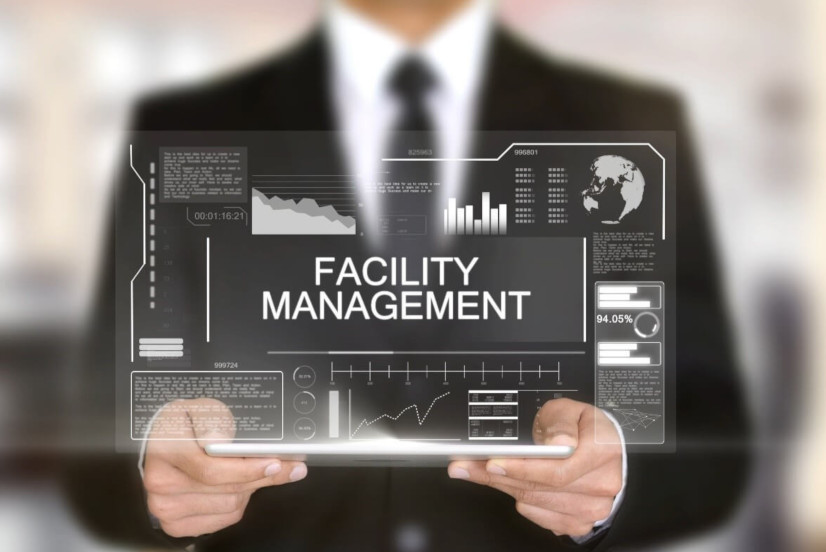Key Patterns Shaping the Future of Facility Management in 2024
As we look ahead to 2024, the landscape of facility management is positioned for substantial change, driven by several essential fads. The assimilation of wise building technologies and a change in the direction of data-driven decision-making guarantee to boost functional efficiency while focusing on sustainability in method.
Smart Structure Technologies

Smart structure innovations include a vast selection of systems, consisting of intelligent illumination, cooling and heating controls, and security systems. By incorporating these systems, facility managers can keep track of and readjust parameters in real-time, resulting in substantial reductions in power waste and operational prices. For instance, clever sensors can detect occupancy degrees and adjust lights and temperature level appropriately, making certain that energy is just used when essential.
Furthermore, these innovations facilitate improved data collection, permitting companies to track use patterns and identify opportunities for additional renovations. The application of smart structure technologies not only adds to sustainability goals yet likewise develops healthier workplace that can improve employee performance and complete satisfaction.
As we relocate into 2024, the fostering of clever structure modern technologies will likely increase, showing a broader change towards even more smart, responsive, and lasting facility management methods.
Data-Driven Choice Making
Increasingly, organizations are leveraging data-driven decision making to enhance center management methods. By utilizing information analytics, facility managers can obtain actionable understandings that considerably boost operational efficiency and source allowance. The combination of sophisticated innovations, such as IoT sensors and real-time monitoring systems, allows the collection of large amounts of data on building efficiency, tenancy prices, and power consumption.
This wealth of info permits center managers to identify fads, anticipate upkeep demands, and proactively address problems prior to they escalate. As an example, predictive analytics can anticipate tools failures, reducing downtime and repair costs. Additionally, information visualization devices promote much better communication among stakeholders, making sure that informed choices are made collaboratively.
Moreover, data-driven methods improve strategic preparation by enabling facility managers to analyze the performance of present methods and make notified choices relating to financial investments in technology or infrastructure. As organizations increasingly focus on operational excellence, data-driven decision production is poised to come to be a foundation of effective center management strategies in 2024 and beyond. Inevitably, the capability to take advantage of data successfully will empower organizations to develop a lot more reliable, effective, and resilient centers.
Sustainability and Eco-friendly Practices
The emphasis on data-driven decision making normally lines up with the expanding concentrate on sustainability and eco-friendly techniques within facility administration. As companies significantly prioritize environmental responsibility, facility managers are leveraging analytics to enhance source use, reduce waste, and decrease carbon impacts. This tactical approach makes it possible for the assimilation of energy-efficient systems, such as LED lights, wise a/c controls, and renewable resource sources into facility procedures.
Moreover, the implementation of lasting techniques extends beyond energy intake. Center supervisors are adopting environmentally friendly materials and promoting recycling efforts to develop a circular economic climate within their facilities. This not just improves the environmental account of the company however likewise promotes a culture of sustainability among staff members.
Compliance with environmental laws is an additional important aspect driving the fostering of green methods. By making use of data analytics, facility supervisors can check compliance metrics and recognize areas for improvement, making sure adherence to worldwide and neighborhood sustainability criteria.
Hybrid Work Designs
A significant change in the direction of hybrid work models is improving the landscape of center top article management in 2024. This standard integrates remote and in-office work, necessitating a reevaluation of room utilization, resource appropriation, and employee engagement approaches. Organizations are significantly acknowledging the importance of flexible workspaces that accommodate varied demands and choices.
Facility browse around this site supervisors have to adapt by executing flexible office styles that sustain collaborative efforts while offering areas for focused job. This includes the combination of modern technology to assist in seamless communication and collaboration amongst remote and in-office employees. Smart building solutions, outfitted with analytics and sensors, enable for real-time tracking of area usage, allowing organizations to optimize their settings successfully.
Moreover, crossbreed work designs emphasize the requirement for efficient facility administration that prioritizes employee experience. In significance, the crossbreed work model is reinventing facility administration, urging a proactive technique to fulfill the developing needs of the workforce.
Improved Occupant Health
As organizations embrace hybrid job models, a heightened concentrate on owner health is becoming integral to center monitoring approaches. Facility Management. This change recognizes that a satisfied and healthy labor force directly affects productivity and retention rates. Facility managers are now focusing on settings that advertise psychological and physical well-being, integrating elements such as all-natural lighting, biophilic layout, and obtainable wellness sources

Technology plays an important function in this evolution. Smart structure systems can monitor environmental variables and adjust setups in real-time, making sure ideal comfort levels - Facility Management. Comments systems, such as tenancy sensors and staff member studies, permit center managers to continuously improve wellness campaigns based on owner demands.
Final Thought
In 2024, the future of facility administration will certainly be dramatically affected by the assimilation of clever building technologies and data-driven decision-making, fostering boosted functional efficiency. These patterns collectively emphasize the developing landscape of facility management in feedback to contemporary challenges and chances.
Facility managers are adopting environmentally friendly products and promoting reusing efforts to produce a round economy within their centers.A substantial change in the direction of hybrid work versions is reshaping the landscape of center management in 2024.In addition, crossbreed job versions highlight the need for reliable facility management that focuses on employee experience.As companies welcome hybrid work versions, an increased emphasis on owner health is becoming integral to facility management techniques.In 2024, the future of facility management will certainly be considerably influenced by the assimilation of smart building innovations and data-driven decision-making, cultivating improved operational efficiency.